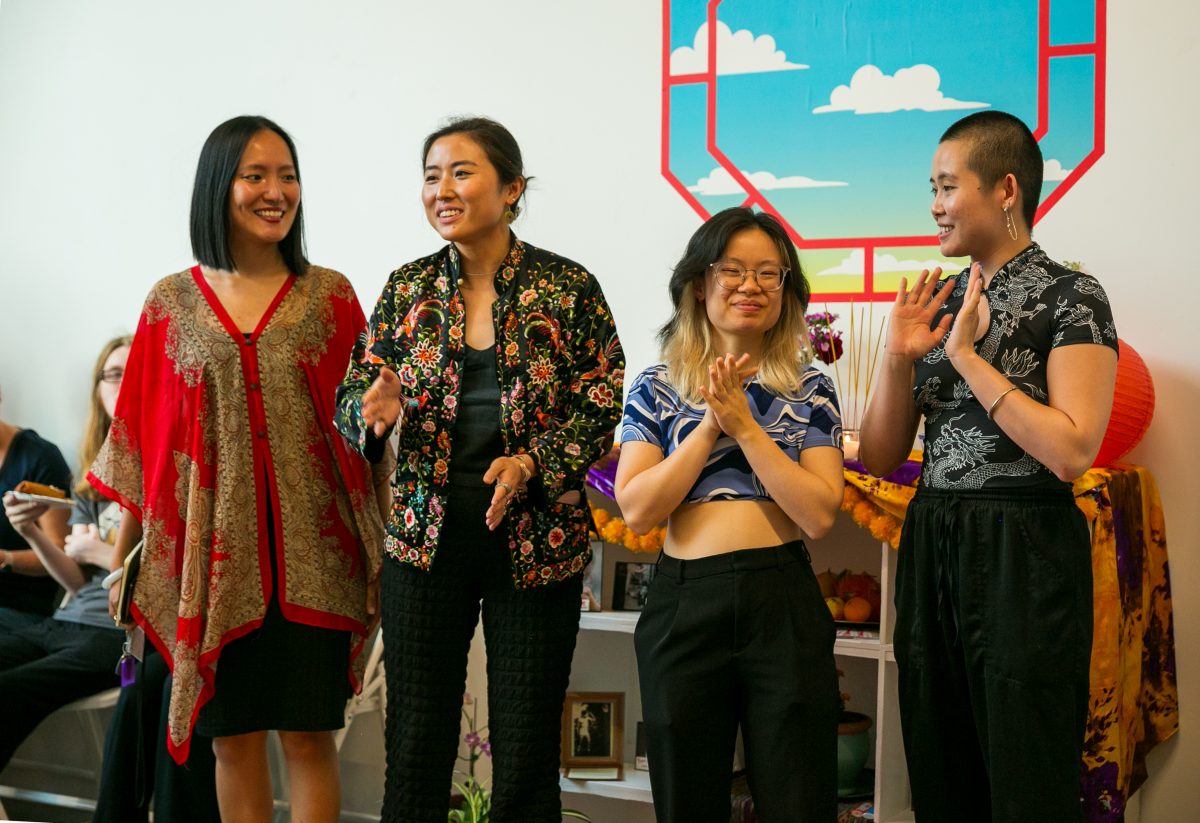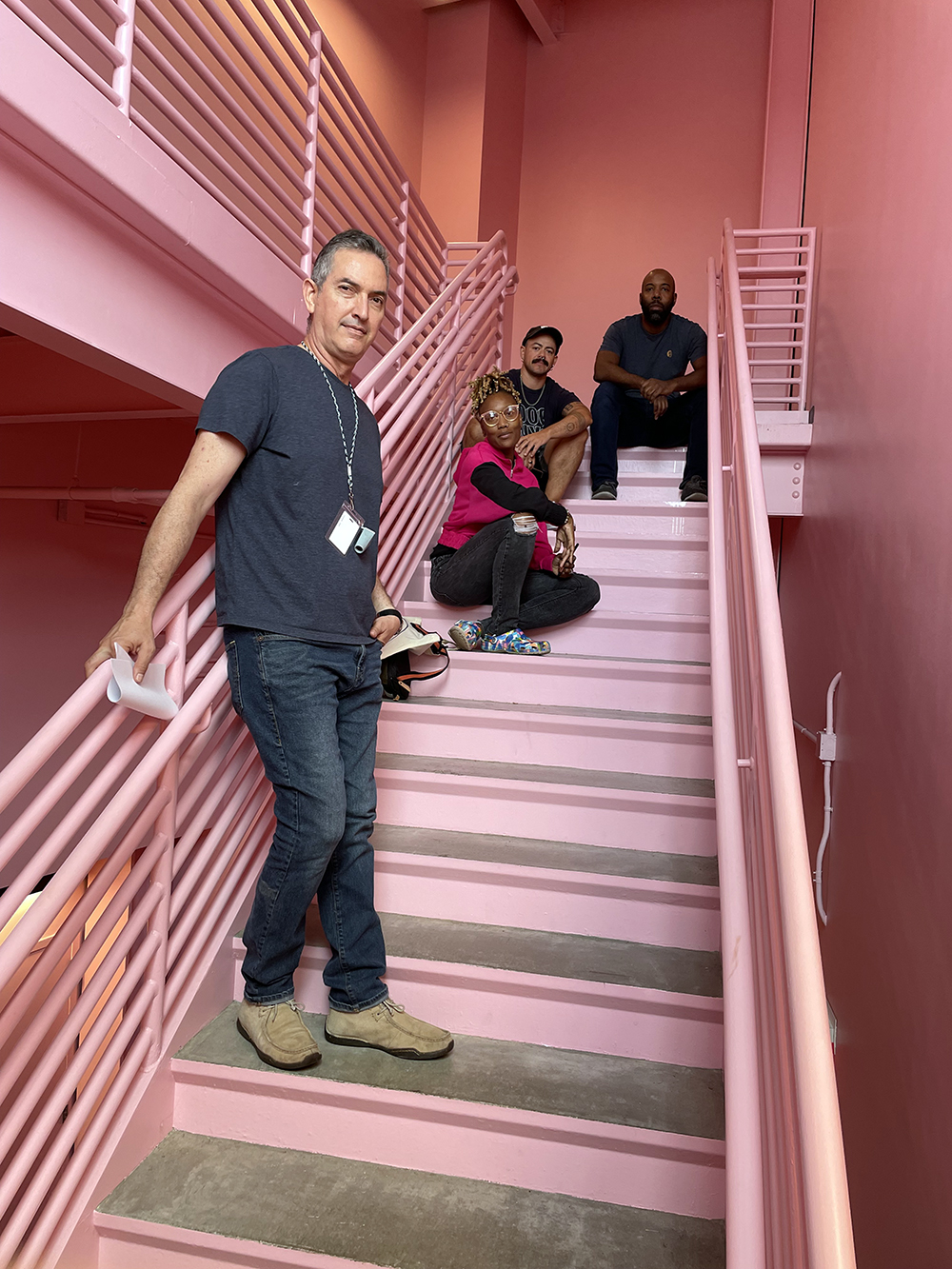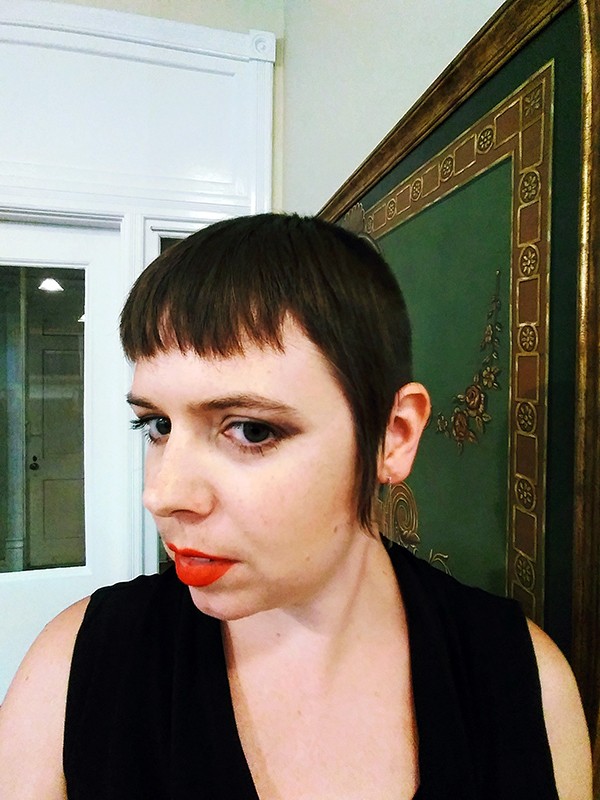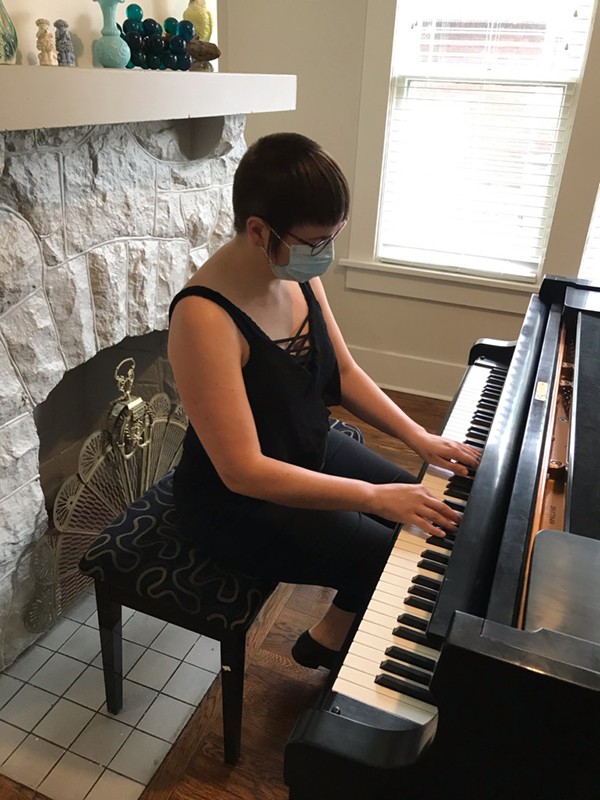Although their respective parents didn’t exactly dream they would one day become artists, Thandi Cai, Lili Nacht, Neena Wang, and Yidan Zeng did just that. “Our parents all chose to come here to achieve some dream that they had, the American dream,” says Wang, “and that transformed into something different for each of our parents. And then they also had dreams for us. And then we took those dreams and made them into our own.”
The four have known one another since childhood, having grown up together in the same circles within the Chinese-American community in Memphis. Over the years, though, as so often happens with childhood friends embracing the next stages of their lives, they lost contact, outside of following each other on Instagram. By 2022, Cai was splitting their time between Chicago and Memphis, while Nacht, Wang, and Zeng resided in Berlin, Los Angeles, and Philadelphia, respectively. They hadn’t seen each other in years, but that summer, Nacht reached out via email to see if they would be interested in Zooming.
What followed were months of Zoom calls, wherein they formed the MengCheng Collective — the name finding its origin in the Chinese phonetic name for Memphis, which also happens to loosely translate to “City of Dreams.”
The Crosstown Arts residency this summer was the perfect opportunity for an in-person reunion, they decided. From the outset, the four knew that their residency would not be about sequestering themselves away to create the art that would be featured in their capstone exhibition. Instead, they would engage the community that they grew up around. “The intention [has been to create] an archive that is not just static, but can also be interacted with, participated in,” says Zeng. “It felt like a lot of our histories in the Mid-South were very invisible or suppressed, so how can we create a way for people to see their histories be displayed in a very public way, in an institution, and also for that to be a moment of celebration and collective witnessing?”
To accomplish this, the group hosted weekly potlucks throughout the duration of their residency, harkening back to their childhood days of attending potlucks at Chinese-American households throughout Memphis. That first potluck was open to the public and had 100 or so in attendance — a turnout they did not expect. In the weeks following, they hosted potlucks with other Asian-American creatives in Memphis, with students from the Memphis Chinese Language School, and with their own families.
With each potluck, the collective says they’ve found themselves in awe of the support they’ve garnered. “I feel like I’ve been on the verge of tears since I got here,” Wang says. “People have been so open and willing to listen to you. People are not just looking for what you can do for them. They really want to connect with you on a human level, and that is just so, so special and not something I’ve found almost anywhere else in the world that I’ve been. It’s made me realize how much Memphis has made me who I am.”
Yet the four agree that being away from Memphis has also solidified their identities. With distance, they were able to look from the outside in, able to question their experiences and to process them. “Living in Berlin,” says Nacht, “I felt a freeness that I never felt growing up, but that was also to do with me having not come to terms or not having not processed the traumas yet, like bullying that I had when I was growing up and the pressures from these generational conflicts. I didn’t even know until I left that it was not a great environment.
“I processed through the traumas [since then], and I’ve grown and matured and reconnected with my sense of self, and after having done all that — it took, like, 11 years — I can come back now as a person with my own agency, from a place of awareness of my culture and my own boundaries.”
Like Nacht, Cai, Wang, and Zeng express similar sentiments — that they feel more sure of themselves, especially in their identities as artists, since leaving and returning to Memphis. “My parents have been really amazing to me,” says Wang. “They’ve never heard me really talk about my artwork, but after my artist talk [at Crosstown Arts], they told me how proud they were of me, that they want me to actually really focus on my art, which is not something that they would’ve said, like, a year ago.”
The potlucks, she says, have also been instrumental in this sense of generational healing, with Cai referring to the potlucks as forms of participatory art.
“It’s helpful, at least speaking for my parents, to witness art in a way that is very much in the communities, that they themselves can also be part of that artistic practice,” Zeng adds. “I feel like, oftentimes, it’s easy for people to just kind of see art as a distant thing, like a sculpture or painting in a museum. But we are all very much interested in using art as a tool for change in relationship building.”
“[Art] is like a language,” Cai says, “especially in places where you have people, different cultures coming together. You may not understand the words or the context of what their sentiments are, but you can feel what they might be feeling. Even just the humility of watching someone create art and being there to receive it is really, I think, an important listening skill for human connection.”
Through their potlucks and artistic practices during their residency, Cai says, “Our community came together in a way that hasn’t happened before. I think that it’s just really important for us to be in the same room affirming one another. I think that is the core of everything that we’re doing. Healing is big on all levels — like within ourselves, within our community, with our presence in the city, between the generations, all of it.
“Art is not just a tool for communicating with people in the present, but it’s a tool for communicating with people in the past and the future. As a time traveling tool, I think it can be really powerful to create the futures that we want to see.”
And the future they want to see, Nacht says, highlights diversity. “We need more representation, first of all,” she says, “as well as a different way of interacting with each other to promote this sort of care for each other in a community that comes from this place of understanding.”
“I don’t know if it is too ambitious to try to strive for,” Wang adds, “but the healing that we’ve experienced and that we’ve seen and that our parents and other people have shared with us [during this residency], I really wish that for other communities in Memphis that have experienced intergenerational trauma and just really anyone who needs to heal their relationship with themselves or their creativity or their family. Yeah, if we could just be an example of that.”
This Saturday, July 22, 6-9 p.m., the MengCheng Collective kicks off its week-long exhibition, “Kai Pa Ti,” with a night of food and fun. RSVP to the free event at Crosstown Arts here.
“Kai Pa Ti” will be on display July 22-29, 3-7 p.m., or by appointment. Appointments can be made by emailing mengcheng.tn@gmail.com.
Follow the collective on Instagram (@mengcheng.tn).


 Courtesy Maeve Brophy
Courtesy Maeve Brophy  Courtesy Maeve Brophy
Courtesy Maeve Brophy